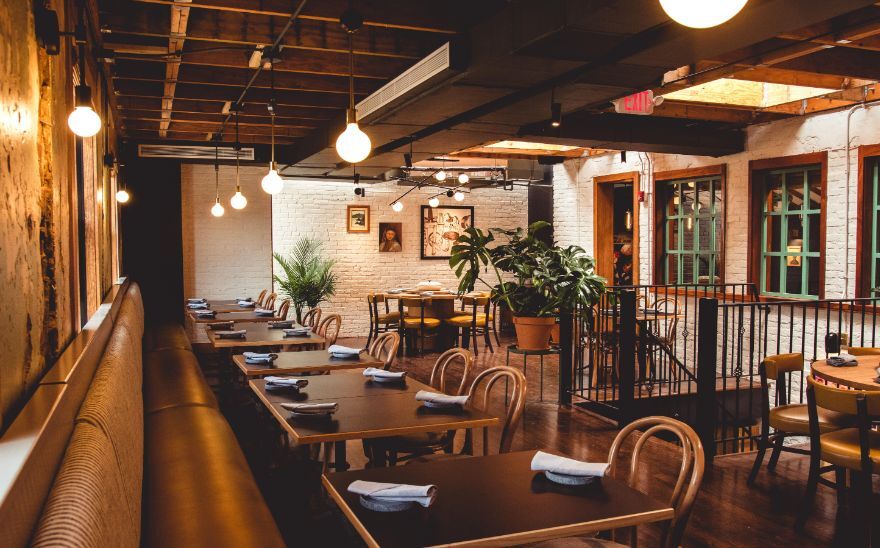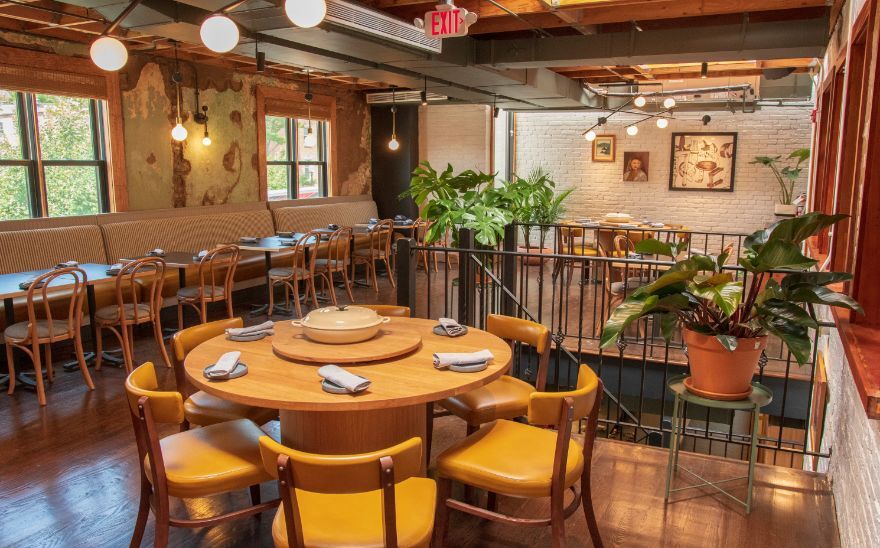DC Korean Gastropub Marries Eclectic and Cozy Decor

Despite a fire that forced longstanding Washington, D.C., Korean eatery, Mandu, to close in 2017, local restaurateur and owner Danny Lee vowed to reopen the family outpost that had occupied the Adams Morgan locale for 11 years. Late last month, Lee made good on this promise with the opening of Anju, a modern Korean gastropub fitted with eclectic decor, lots of greenery, and a variety of dining areas for both formal and casual experiences.

Stretching across 2,500 square feet on two floors, Anju can accommodate 100 people including its 16 sidewalk patio seats. On the first floor, custom millwork screens divide high-top tables and a bar that features 10 seats and a small lounge nook. Here, diners can partake in happy hour specials or an exclusive late night menu, daily. The nearby open kitchen is lead by chef Angel Barreto and fitted with a fermenting fridge for kimchi and banchan (Korean small plates) station, which diners at any of the four kitchen counter seats can view.

“There is visual openness throughout but each space is unique and delineated from each other using the open millwork screens and windows," says Natalie Park, local designer of the project and Lee's wife. “We incorporated subtle Korean elements, including the pattern in the open millwork screens and thematically in the wallcovering and some of the art."
As part of her plans for a nostalgic, cozy environment, Park incorporated mid-century modern furniture, a varied color palette, and meaningful wallcoverings into her design. Park selected a crane motif for the bar area as a nod to the birds' symbolism of longevity and good fortune in Korean culture, and a graphic orange pattern for the dining room, which reminded her of the art on a Korean card game. The design team was even able to salvage some of the building's original structural elements for a shabby-chic patina.
“Most of the space had to be gutted due to smoke and water damage, but we peeled back layers of drywall to find the original brick and wood joists," Park says. “Some of the old plaster and paint we found worked right into our warm and cozy palette. We revived the original wood floor in the main dining space and left most of the ceiling open to expose the existing steel beams and old joists."

Upstairs, these exposed elements contrast whimsical teal window grilles, mustard yellow leather chairs, and oversized porcelain lightbulbs that “provide a nice warm glow in the dining area," Park says. Two tables on the second floor feature built-in induction burners for the elevated jeongol (Korean hot pot) tasting menu.

Skylights and windows offer ample daylight with translucent woven wood blinds installed in areas that require more privacy. The adjacent 20-seat private dining Garden Room contrasts the main dining room “with dark dramatic walls, a high pitched ceiling, lots of hanging plants, and a huge floral painting by Danny's aunt and local artist Moon Lee," Park explains.
Park curated much of the artwork, including custom portraits of the restaurant partners' dogs in the bar area and “quirky" black and white sketches by local artist Dana Jeri Maier. Park and Lee even incorporated personal items from their travels and antique shop finds.

“With so much history tied to the space – personal, building and neighborhood – we wanted to honor the existing story while giving it new life with Anju," Park says. “We created a cozy, homey and somewhat nostalgic environment that felt fresh and new, which also reflects the style of cuisine."
